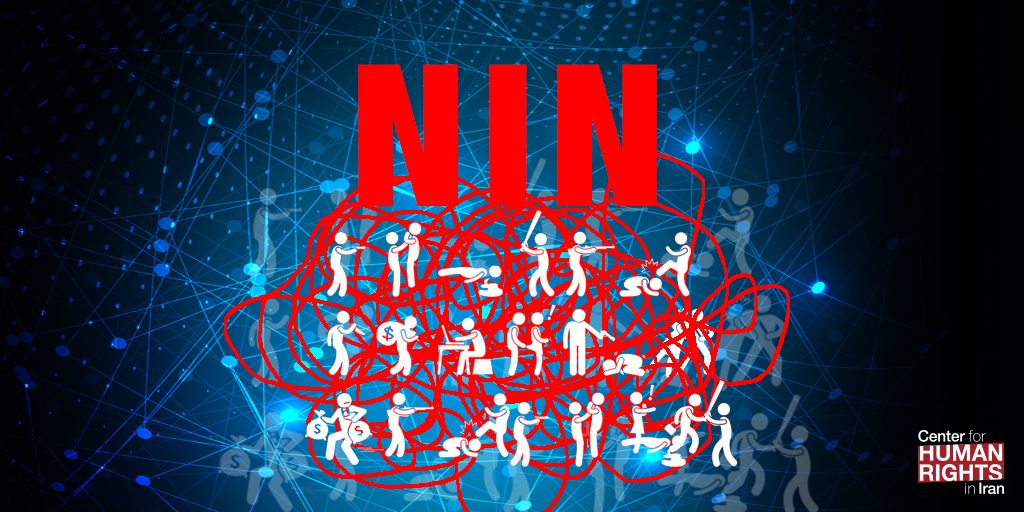Cyberattacks on Iranian Online Businesses Expose State’s Failed Digital Security Promises

Government Touted
“National Information Network” by Promising Improved Digital Protections
At least 20 digital media and
financial companies in Iran were targeted with DDoS attacks in February 2019,
highlighting the government’s inability to deliver promised protections to
citizens or stop the current round of attacks, the Center for Human Rights in
Iran (CHRI) has learned.
Distributed
denial of service (DDoS) attacks aim to
make a website unavailable and are typically used when the attacker is trying
to prevent dissemination of information released on a website.
In this round of attacks, the
anonymous assailants also aimed to carry out financial extortion against
company owners, including by demanding Bitcoins, a form of electronic currency.
At present, only one of the
companies has been able to bring their website back online.
CHRI has also learned that
after the Iran-based tech news website Fanavaran published a report about the attacks, an individual using the pseudonym
“Master” contacted the reporter and the editor and threatened to launch a DDoS
attack against the site if the report was not deleted.
When Fanavaran refused to
comply, its website became inaccessible under a new round of DDoS attacks, and
remains down at the time of this writing.
To date, the only response from
the Iranian government has been a text message from the FATA cyber police force
warning some company owners that they could come under attack: “Warning: There
are varied and widespread DDoS attacks against Iranian businesses with the use
of millions of [botnets]. We advise you to update and upgrade your tools.”
Attacks Highlight Inability of
NIN to Protect Iranian Users
Since 2016, officials of the
Ministry of Information and Communications Technology (Telecommunications
Ministry) have been trying to assure the Iranian public that the
state-controlled National
Information Network (NIN), launched that
year, provides increased protection against DDoS attacks.
NIN, which gives the Iranian
government newly, expanded abilities to control users’ access to the internet
and monitor their online communications, also separates domestic internet
traffic from international internet traffic, allowing the state to cut Iranians
off from the global internet while maintaining access to state-approved
domestic sites and services.
In August 2016, Esmail Radkani,
the assistant in charge of network management at the state-run
Telecommunications Infrastructure Company (TIC) stated that NIN’s DDoS protection and anti-phishing modules would
“guarantee” security.
But Sajad Bonabi, a TIC board
member, told Fanavaran on February 17, 2019, that, “These services are
not available on NIN, and therefore the private sector cannot get active in
this field.”
Speaking about the DDoS attack
his company suffered, Adventure CEO Alireza Aghasi told CHRI that part of
the protection promised by the Iranian government would require hosting data
centers inside Iran, which is expensive and cumbersome.
“Infrastructure data centers in
Iran are very expensive and their quality is not satisfactory and therefore in
order to ensure our protection we have to do everything ourselves,” he said.
Aghasi added that his company’s
current situation in Iran is “painful” because he is unable to get the digital
security he needs inside or outside Iran.
“If we transfer to a foreign
host server it will cause two major problems,” he said. “First, our server
might be shut off at any moment because of the sanctions on Iran.”
“Second, the quality of access
to the international internet is very poor in Iran,” he added. “Communications
is very slow on it and as a result, our services will suffer.”
Companies that have opted to
host their data outside Iran have seen their services suddenly cut. For
example, in January 2019, Digital Ocean, a major American cloud
infrastructure provider, informed its Iranian clients that it was cutting off service due to
US sanctions.
Masoud Tabatabaie, CEO of Ali
Baba travel site, said in an interview with the tech website Webmasterfa that the
Iranian government has not done anything to prevent more attacks.
“We have contacted the Maher
center but so far nothing major has been done to deal with these attacks,” he
said. “Perhaps if all the businesses that have been victims of such attacks
unite, maybe then something could be done to stop them.”
“Maher” is the Persian acronym
for the Computer Emergency Response Team Coordination Center (CERTCC), which operates under the Telecommunications
Ministry.
Are Telegram Client Apps
Facilitating Cyber Attacks in Iran?
Farhad Fatemi, the technology
vice-president at Arvan, an Iran-based web hosting
company used by many of the businesses targeted in the latest round of
attacks, told the Islamic Republic News Agency that during the week of
February 18, at least 20 major Iranian companies had been attacked.
They include Zarinpal, a financial services company; Ali Baba, which sells airline, train
and bus tickets; and the Fanavaran tech daily. To date, only Zarinpal has succeeded in
warding off the attacks.
The head of the state-run
Information Technology Organization (ITO), Amir Nazemi, indirectly
suggested that Hotgram and
Telegram Talaeii, Iranian-made client apps
based on the Telegram
messaging app, could be facilitating the attacks.
He told Fanavaran on February 17, 2019: “A lot of IPs were used to
carry out these DDoS attacks and we strongly suspect that the cause is an
infected app, which has turned mobiles and computers into zombies that attack
businesses.”
Asked if he was referring to
the Iranian-made Telegram client apps, Nazemi responded, “Yes, this is one
possibility but we are carrying out more investigations to prepare a more
complete report.”
No comments:
Post a Comment